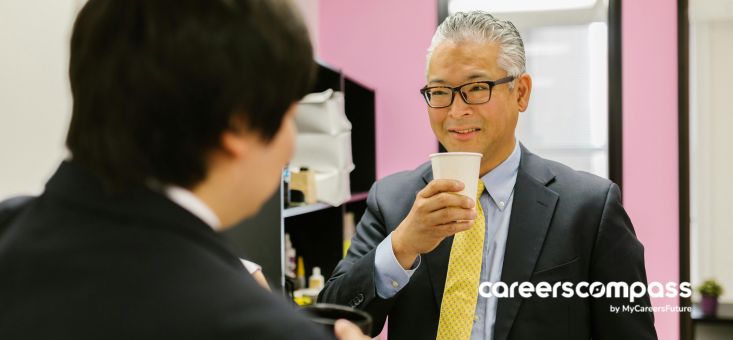If you haven’t heard, Singapore’s retirement and re-employment ages will be progressively raised to 65 and 70 by 2030. This is to support older Singaporeans who wish to continue working and also better prepare Singaporeans for retirement.
With Singaporeans having one of the longest-living and oldest populations amongst Southeast Asian nations currently, this move is in keeping with other countries like China, Spain, Germany and France, which are all looking to raise their retirement ages as well.
Part of the reason is due to labour shortages around the world, especially with the end of Covid-19 lockdowns across the developed world.
Why working longer isn’t such a bad idea
In addition, the Organisation for Economic Co-operation and Development (OECD), an international organisation that works to build better policies for better lives, suggests that every time life expectancy rises by three years, governments should delay retirements by two years.
For Singapore, our reasons for continuing work into our later years might be for various different reasons.
Perhaps you’d like to earn extra money, socialise, or try a career you were curious about but never got a chance to try? Or your goals might be just to maintain physical and mental health and keep busy. For some seniors, loneliness can be an issue.
Of course, there are always other options to choose from than full-time work. Some seniors start businesses after retirement, while others find part-time jobs.
In fact, United Overseas Bank (UOB) launched a new gig employment model that brings back retired workers for short and long-term and project job opportunities that require “deep technical expertise and extensive experience.”
These include areas like customer service, process and systems training, operations and project advisory.
Mark Lee encourages his friend Jennifer that she is never too old to pick up a new skill.
If you’re looking for jobs that offer similar longevity, check out the careers below which are also available on MyCareersFuture!
Can you work as a software developer into your 70s?
Now you might be surprised at this job on our list — after all, it’s quite widely believed that older workers tend to get left out of fast-changing technology roles in the marketplace. However, that might be changing, given the ramp-up in tech hiring in recent years, coupled with a high demand for software developers.
A good example would be tech company RelevantDB, which put out a job post for developers saying: “Unlike Silicon Valley, we do not discriminate based on age. Experience matters. We hire old people. (And young people, too.)” Thus, retirement jobs as a software developer might not sound bad!
According to tech website TechRepublic, RelevantDB’s chief executive officer said older developers are undervalued and often excluded for cultural reasons or for reasons of “fit”.
“This presents a market opportunity for us. We care about a developer’s ability to write code. If we can pick up good coders that other firms reject, then we have a competitive advantage,” Cleveland said.
“We do not discriminate and will hire people of any age who can do the work well. Silicon Valley does discriminate, blatantly and often openly. So much the better for us,” Cleveland said.
Singaporeans love our food— how about the food and beverage industry?
For some folks, cooking is more than just a fun activity. Many have caught the cooking bug by watching shows like Masterchef or following the exploits of celebrity chefs such as Gordon Ramsey. Why not make it part of either your secondary career or a passion project sideline? Cooking certainly has longevity as a career path — we Singaporeans love to eat, and eat well!
In fact, there are many cooking courses that are SkillsFuture credit-eligible, which means you can actually learn to be chefs-in-training while tapping on the $500 provided for every Singaporean aged 25 and above to offset your cooking courses!
Ever considered going into education?
The need for experienced and wizened educators for all ages isn’t just limited to Singapore. In fact, according to reports, not too far from our shores, the number of teachers working past retirement age has more than doubled in the past decade in New Zealand as well!
According to Godfrey Geismar, 77, teaching has become harder, with more paperwork, but children are generally the same.
“I have learned in 50-something years how to deal with kids who are being difficult and not jump down their throat and tell them off in front of everybody else.”
Locally retired educators said many go back to teach as their children have grown up and moved out, freeing up much of their time.
The Ministry of Education has an adjunct teachers programme, introduced in 2004, to bring former teachers back to work. It offers a more flexible arrangement in which returning teachers are paid an hourly rate.
Re-employed teachers also get to keep their last-drawn salary if they have the same position and job scope. There are also some retirement jobs in Singapore such as cleaners, security guards positions etc.
“MOE recognises that retired principals and teachers, having built up considerable experience and knowledge throughout their service, are a valuable resource to the education system,” an MOE spokesperson shared in a Straits Times report.
With Singapore’s greying population, it’s all hands on deck for healthcare!
It’s hardly news that Singapore’s population is ageing, and with more suffering chronic ailments, more workers in the industry are needed.
And it’s not just doctors, but nurses capable of helming clinics in primary and community health settings to staff new polyclinics, public hospitals, community hospitals and nursing homes, as well as to help in-home and palliative care.
And experience, both professionally and in life, is certainly of key importance in the industry. After all, with age comes the highs and lows of life experience. Older healthcare workers who may have either cared for parents or raised children would have greater empathy and patience for those who need it. Thus, with more older workers, there are more retirement jobs in Singapore to do! With the retirement ages raised in Singapore, there needs to be retirement jobs for our older workers in Singapore.















